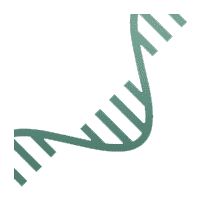Exosome RNA Sequencing
Exosomes are endosome-derived small membrane vesicles with diameters less than 150 nm that are present in nearly all biological fluids (e.g., blood, breast milk, saliva and urine). The exosomes contain not only protein components, but also some RNA components, such as microRNA (miRNA), long non-coding RNA (lncRNA) and messenger RNA (mRNA), and circular RNA (circRNA). These RNAs carried by exosomes are collectively called exosomes-derived RNAs, which have a complete sequence structure and biological activity.
 Fig1. Schematic representation of exosome biogenesis and molecular cargo. (Hofmann, 2020)
Fig1. Schematic representation of exosome biogenesis and molecular cargo. (Hofmann, 2020)
Overview of Our Exosome RNA-Seq Service
CD Genomics adopts the method of ribosome removed library construction to the whole transcriptome sequencing service of exosomes. We can simultaneously detect lncRNA, mRNA and circRNA in samples to obtain comprehensive transcriptome information, and then carry out expression analysis, structural research, variation research and discovery of new transcripts for different types of RNA.
Service Portfolio
Explore how biofluid profiling using NGS helps researchers understand dynamics and interactions of exosomal RNA.
Exosomal microRNA Sequencing
Our exosomal microRNA sequencing examines monitor global microRNA expression at an affordable price, enabling the identification of biomarkers associated with diseases like cancer.
Learn MoreExosomal Small RNA-Seq
Exosomal small RNA sequencing is a powerful tool for analyzing small RNAs including miRNAs, piRNAs and siRNAs, offering both quantitative and qualitative information.
Learn MoreExosomal lncRNA-Seq
Exosomal lncRNA sequencing examines global lncRNAs in exosomes. As exosomal lncRNAs are involved with tumorigenesis, tumor angiogenesis, and chemoresistance, this service can detect promising biomarkers for cancer.
Learn MoreExosomal Long RNA-Seq
Exosomal long RNA-seq analyzes mRNAs, long non-coding RNAs, and circular RNAs in the sample, enabling alternative splicing analysis and detection of novel transcripts, and gene fusion events.
Learn MoreExosomal mRNA-Seq
Exosomal mRNA sequencing service can not only help you to profile exosomal mRNA with regard to the expression levels and dynamics but also understand the physiological roles, with or without knowledge of priori sequences.
Learn MoreExosomal circRNA-Seq
Exosomal cicrRNA-Seq can quickly and efficiently obtain global information on exosomal circRNAs. Our single-base resolution technology allows the detection of circRNAs from very small amounts of cellular material.
Learn MoreFeatures
| Rich Sample Types | Comprehensive | Low Sample Requirements | Specific Detection |
|---|---|---|---|
| This method can test serum, plasma, cell supernatant, breast milk, urine, and total RNA without DNA contamination, etc. | This method can retain all kinds of RNA information. | Total RNA as little as 1ng. | This method can use chain-specific library construction to accurately detect antisense RNA. |
Project Workflow

1. Sample Preparation

2. Library Preparation

3. Sequencing

4. Data Analysis & Delivery

Bioinformatics Analysis Pipeline
In-depth data analysis:
- Differential analysis
- Function enrichment analysis
- Prediction and identification of circRNA
- Principal component analysis of samples based on gene expression
- Construction of lncRNA-mRNA jointly express network (CNC network)
- Transcriptional regulatory activity analysis and pathway interaction analysis
Sample Requirements
Sample Volume: For cell supernatant, a minimum quantity of ≥ 30 ml is recommended, while serum and plasma samples should be ≥ 4 ml. Bile samples should be ≥ 5 ml, and urine samples should be ≥ 20 ml. For cerebrospinal fluid, chest fluid, and ascites, a minimum of ≥ 30 ml is advised. Exosomal RNA quantity is ≥ 20 ng for accurate and reliable results.
Please refer to our Exosome RNA Sequencing Sample Submission Guidelines for more details.
Sample Quality: no obvious degradation of RNA, ≥ 500 ng/μl, 1.8 ≤ OD260/280 ≤ 2.2, RIN ≥ 7.0, 28S:18S ≥ 1.5.
Deliverable: FastQ, BAM, QC report, differential expression RNA screening, cluster analysis, target gene enrichment analysis, KEGG/ GO analysis, custom bioinformatics analysis.
Demo Results
 RNA sequencing data quality
RNA sequencing data quality
 Transcriptome mapping results
Transcriptome mapping results
 Differential gene expression analysis results
Differential gene expression analysis results
 Volcano plot and scatter plot
Volcano plot and scatter plot
 Differential mRNA transcript clustering heatmap example
Differential mRNA transcript clustering heatmap example
 Protein interaction network diagram example
Protein interaction network diagram example
Case Studies
Parkinson's disease is a challenging puzzle without effective treatments. In our study, we investigated the molecular issues behind dopaminergic dysfunction using MSC exosomes. Whole transcriptome sequencing on MSC exosomes, with a focus on miRNA profiles, was employed. Subsequent analysis of genes through GO and KEGG pathway studies provided valuable insights. The analysis pointed to the involvement of key pathways, specifically PI3K-Akt and AMPK, known to be associated with Parkinson's disease and neurodegeneration. A potential target, Nox4, was identified, exploring how miR-100-5p could regulate it. This interaction was confirmed through qPCR and dual luciferase assays. This discovery enhances understanding and suggests potential targets for future therapies.
 Sequencing analysis of T-MSCs-Exo miRNAs, and miR-100-5p directly targets the 3' UTR NOX4. (He et al., 2023)
Sequencing analysis of T-MSCs-Exo miRNAs, and miR-100-5p directly targets the 3' UTR NOX4. (He et al., 2023)
FAQ
-
- What kinds of method should we use for building a whole transcriptome library from 100-200ng of exosomal RNA?
-
- When conducting exosome studies, should plasma or serum be utilized?
-
- How can serum-derived exosomes be eliminated when culturing cells?
-
- Does the presence of dead cells impact exosome extraction during cell culture?
-
- What is the recommended initial sample volume for preparing exosome small RNA sequencing?
-
- Which internal reference is recommended for conducting exosomal RNA RT-PCR experiments?
-
- How can extracted exosomes be identified?
References:
- Hofmann, Linda, et al. The Emerging Role of Exosomes in Diagnosis, Prognosis, and Therapy in Head and Neck Cancer. International Journal of Molecular Sciences 21.11(2020):4072.
- Li, Yan, et al. Circular RNA is enriched and stable in exosomes: a promising biomarker for cancer diagnosis. Nature Publishing Group 8(2015).
- He, Songzhe et al. "miR-100a-5p-enriched exosomes derived from mesenchymal stem cells enhance the anti-oxidant effect in a Parkinson's disease model via regulation of Nox4/ROS/Nrf2 signaling." Journal of translational medicine vol. 21,1 747. 24 Oct. 2023.













